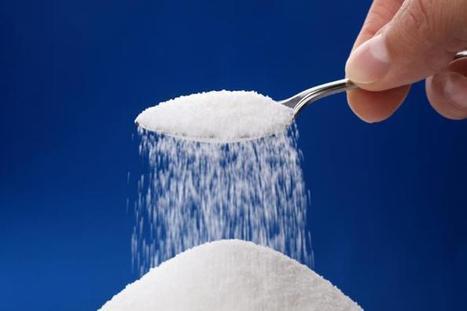Move over sketchy dental insurance companies (sideways look at you, United Concordia); there’s an even dirtier organization on the block with regard to dental health: the sugar industry. We’ve been aware for a good while that the sugar industry blatantly rejects good science and any regulatory measures related to problems such as obesity and diabetes. Recently we learned that the magnitude of their moral filthiness extends to an even deeper level—that of Phillip Morris.
By the 1960s, scientists had established firm links between smoking and a myriad of health problems, most notably lung cancer. In response, the tobacco industry did everything in their power to cover up evidence, distract and divert attention, and use their incredible arsenal of money, power, and legal clout to fight opponents and influence tobacco legislation. The case is well documented, and it is very evident today that Big Tobacco is a completely immoral industry that has always attempted to trample community health in favor of big profits (and does so today with great success in most of the world). Researchers who have been going through sugar industry documents from 1959 to 1971 known as the “Roger Adams papers” published some very alarming findings earlier this month. Essentially they describe how the sugar industry has behaved just like the tobacco industry in their pursuit of financial gain at the expense of your health.
In 1966 the National Institute of Dental Research (NIDR) began a program to identify causes for, and eradicate dental decay as a disease. Their goal was to accomplish all this within a decade. In 1971 the National Caries Program (NCP) was launched by the NIDR. It was to be the job of the NCP to establish the specific proposals based on NIDR research that would serve to end dental decay as a disease. Unfortunately, as the Roger Adams papers reveal, the World Sugar Research Organisation (WSRO), a trade body that represents the whole cane and beet sugar industry, had heavy influence on the NIDR and turned the NCP into mostly a waste of time and money.
Research conducted as early as 1950 clearly showed sucrose (table sugar) to be the cause of dental decay. It was abundantly clear in the 1960s that the way to reduce cavities was to limit sugar intake. Policies along these lines would have greatly helped the public, but they also would also have the effect of hurting the sugar industry’s bottom line (i.e. the sugar industry would sell less sugar). Instead of taking this research and running with it, the NIDR focused the NCP’s efforts on stupid things that didn’t attack the problem at its heart. Instead of going after sugar intake, our government followed NCP advice by spending money on research projects like finding a cavity vaccine and developing plaque-disrupting enzymes—both of which still haven’t yielded any significant results today(we consume too damn much sugar to even give things like these a chance anyway!). The Roger Adams papers also show just how closely tied Big Sugar was to the NIDR during the 1960s; 78% of the NIDR’s initial research initiatives came directly from the sugar industry itself! Literally, the people peddling the sugar were dictating to our government how it should deal with sugar-related health problems. Does that sound more like an organization committed to solving a problem or a cesspool of corruption and self-interest? My conclusion: the sugar industry is just as evil as the tobacco industry; both try their hardest to hurt your family’s health and both are massively profitable.
So what does all of this mean to us? The Roger Adams papers are simply evidence that the sugar industry is no better than Big Tobacco. In addition to the pandemic-level problem of dental decay that we see in the world, excessive sugar consumption is responsible for obesity in general, childhood obesity, type 2 diabetes, and other serious health problems. This is a major concern that likely affects your family directly in some way. If not, rest assured that it has major indirect ramifications on your family’s finances. What effect do you think obesity and diabetes have on your tax dollars (Medicaid, Medicare, etc.) and the insurance premiums you pay?
Although it is entirely speculation to say that the NCP’s efforts would have significantly reduced dental decay in the United States in 10 years (let alone eradicated the problem) had their policies been aligned with actual science, I really do think that regulations limiting sugar consumption would have made a huge positive difference in our oral health. Rather than declining in influence since 1971, the sugar industry now has a seemingly immovable foothold on our food. Everything we eat seems to be sweetened and pumped full of empty calories and this is taking its toll on our bodies and our teeth. Now don’t get me wrong; I’m by no means the poster child of healthy eating. I do, however, resent the unethical means by which the sugar industry has gained so much power over our diets.
The most important discussion point from this study is best stated by the authors in the concluding remarks of their article:
“This historical example illustrates how industry protects itself from potentially damaging research, which can inform policy makers today. While it may be valuable in theory for the industry to contribute data about their products to the research community, industry should not have the opportunity to influence public health research priorities. Regulatory science to support sensible and defensible policies to limit added sugar consumption was not pursued in the 1970s because of the alignment of the NIDR’s research priorities with those of the sugar industry. Actions taken by the sugar industry to impact the NIDR’s NCP research priorities, which echo those of the tobacco industry, should be a warning to the public health community. The sugar industry’s current position—that public health recommendations to reduce dental caries risk should focus on sugar harm reduction as opposed to sugar restrictions—is grounded in more than 60 years of protecting industry interests. Industry opposition to current policy proposals—including a World Health Organization guideline on sugars proposed in 2014 and changes to the nutrition facts panel proposed in 2014 by the FDA—should be carefully scrutinized to ensure that industry interests do not supersede public health goals.”
http://journals.plos.org/plosmedicine/article?id=10.1371/journal.pmed.1001798
-Nicolas K. Young, DMD










